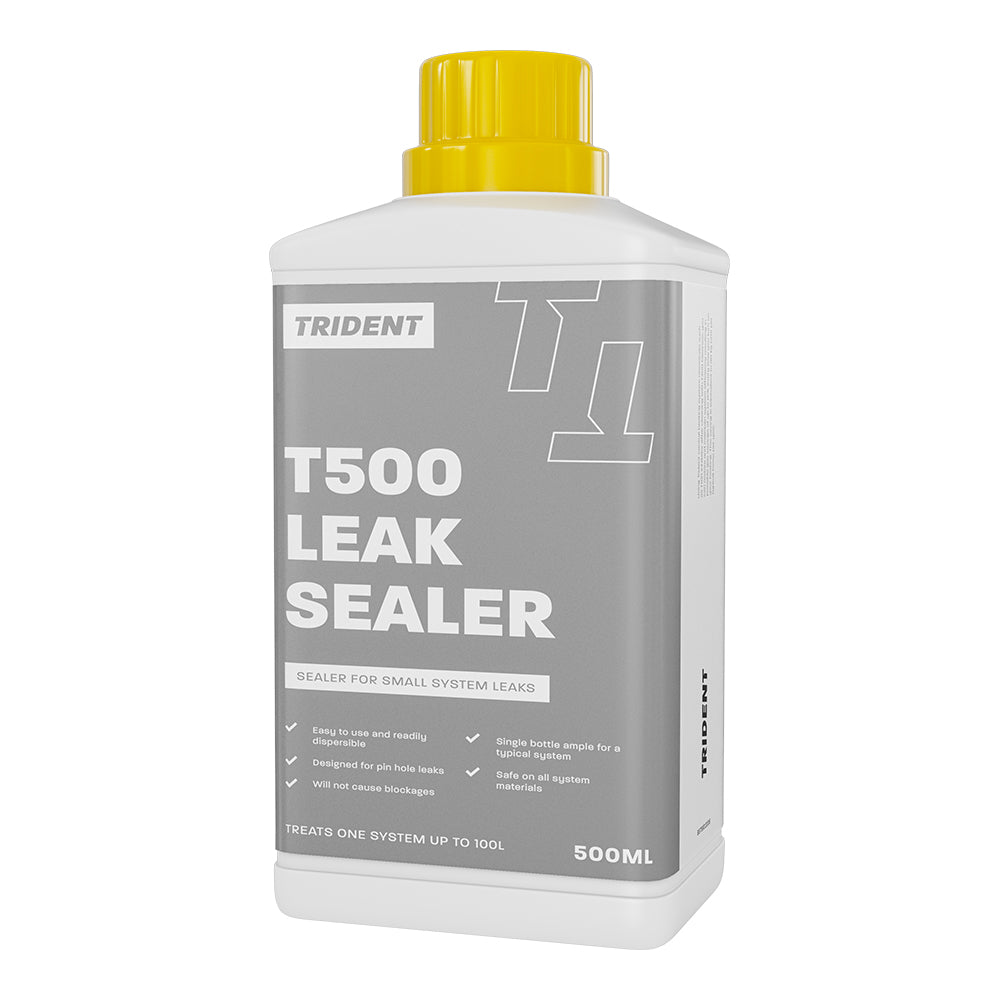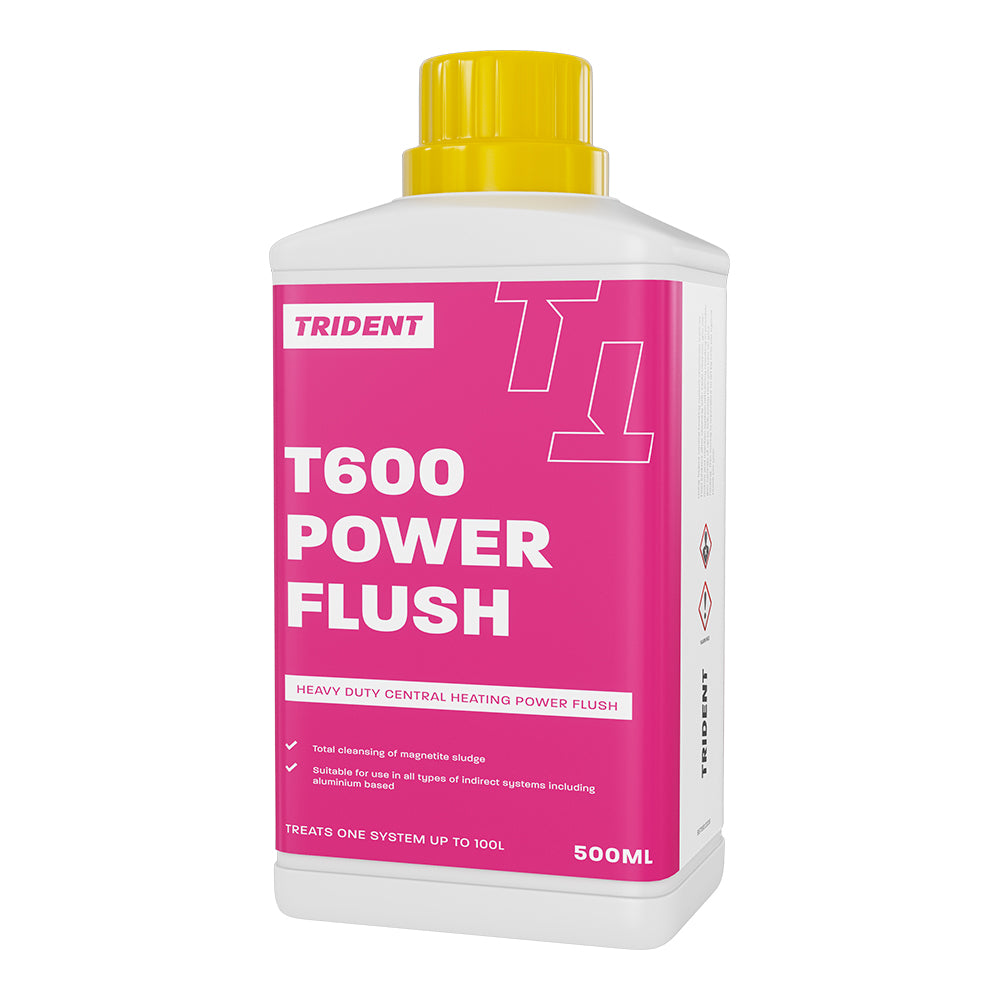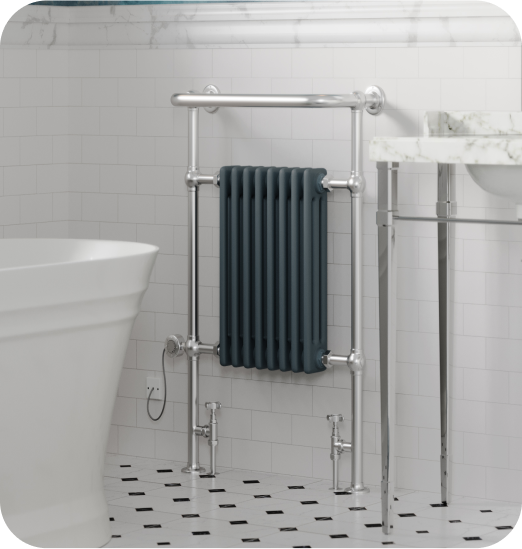
Can AI Answer The UK’s Most Googled Heating Questions?
How often do you Google a quick question to only be bombarded by various, sometimes conflicting, answers from different websites? If your answer was “a lot” then you may be excited to hear the news about the new AI chatbot, ChatGPT, that is rumoured to replace Google as a search engine, but how effective is this AI? Our in-house heating experts decided to ask ChatGPT the UK’s most searched heating questions to evaluate how accurate and helpful the responses are. Here is what we found.
How Much Does Underfloor Heating Cost?
ChatGPT’s Answer

Our In-House Heating Expert’s Answer:
Electric Vs. Wet Underfloor Heating
The price of your underfloor heating will depend on its type. An electric underfloor heating system can be considered a stand-alone system, as you would not need a separate system to heat the room, while a wet underfloor heating system requires a separate heating system like a gas boiler or heat pump.Installation Costs
Underfloor heating installation costs can vary depending on a few different factors such as the size and age of your property, how many rooms you’d like to install underfloor heating in, and how much labour work it will take to install the system. To get a rough estimate of how much you will pay per square metre, you need to consider your property and underfloor heating system type. Here is a guide on how much it would cost on average:|
Property Type |
Underfloor Heating System Type | Average Cost per m2 |
| New Build | Electric | £50 - £75 |
| New Build | Wet | £120 - £135 |
| Renovation | Electric | £60 - £85 |
| Renovation | Wet | £135 - £185 |
Running Costs
When considering running costs we need to take a few things into account. Underfloor heating will have a higher ground heat loss when compared to convection-style heating (radiators). This will need to be accounted for when sizing your room for heat energy requirements. With underfloor heating, there is a larger mass (the floor) that has to be heated to allow heat energy to transfer to the room at the required rate. This is no different than the way a regular radiator works -the radiator mass has to be raised to the required temperature before the heat transfers effectively to the room. As a rule of thumb, when comparing underfloor heating types, electric underfloor heating will have a significantly higher running cost than wet underfloor heating. This is purely due to electricity being more expensive than gas or a heat pump system.Evaluating ChatGPT’s Answer
Score: 8/10 The answer provided by ChatGPT was concise yet informative. It clearly understands that there are several factors to consider when it comes to Underfloor heating and does a great job of breaking it down. It also gave us a rough estimate of how much everything would cost, which would be very helpful to anyone considering purchasing underfloor heating. However, it didn’t provide any additional knowledge or explanation in its answer compared to our expert. Our expert highlights a few factors to consider when looking at running costs while ChatGPT did not mention this in any detail. When considering buying underfloor heating, it is vital to know how much it will cost each month before installing it, hence why we think it should have been mentioned in the response.How Do Heat Pumps Work & Are They Worth It?
ChatGPT’s Answer


Our In-House Heating Expert’s Answer:
Heat Pumps are a great option often used in cooler climates, such as Scandinavian countries. To answer the question of whether they’re worth it or not, we need to explain the types of heat pumps and how they work.Types of heat pumps:
- Ground to Water
- Air to Water
- Ground to Air
- Air to Air
How do Heat Pumps Work?
In simple terms, a heat pump takes some energy from the grid (mains electric) and uses this to get more energy out of the environment (ground or air). The colder it is outside, the more energy is taken from the grid. This energy is then used to heat water which is pumped around the radiators in the home. When you consider the UK and the lay of the land, air-to-water heat pumps become less practical the further north you go. This is because the ground temperature does not change as much as the air temperature, so in places like the Scottish Highlands, a ground-to-water heat pump would be more suitable. This isn’t to say that air-to-water heat pumps wouldn’t work in the Scottish Highlands, just that they are less practical because the amount of available energy in the air will be less than what is available from the ground.How do I heat my home with a heat pump?
Generally speaking, heat pumps are on 24/7. However, they aren’t at full temperature the whole time, so you still have control over when it is at full temperature.Running at a lower temperature instead of turning them off completely makes heat pumps more efficient than gas central heating Taking some energy from the grid and the rest from the environment means that if you can get your heat pump operating at a really low water temperature from the radiator, you would save a lot of money even if you did run it 24/7.Are Heat Pumps Worth It?
The answer to this mainly depends on the price of electricity and gas. Electricity is currently a lot more expensive than gas which can change over time. There are also a few other points to consider before making the decision: 1. The efficiency of a heat pump is defined by a principle called COP. If it has a COP of 3, then this represents a heat pump that is 300% efficient. This means that for every 1KW of energy taken from the grid, 2KW would come from the environment, meaning a total of 3 KW of energy would be used as heat energy in the home. The lower the temperature you need to heat the water for your radiators, the higher the COP/efficiency is. 2. Bigger radiators are generally required to allow you to have a lower water temperature and gain enough heat out of the radiator to heat your home efficiently. Simply put, as the water in the radiator is at a lower temperature when using a heat pump system, there is less energy transferred from the radiator per m2 compared to when the same radiator is supplied by a gas central heating system with a higher water temperature. This means that you need more square metres of a radiator (i.e. a bigger radiator) to make up the difference. However, see point four below before this puts you off. 3. Considering electricity is more expensive than gas,r to make a saving by using a heat pump you would generally need to have a COP of at least 3.5 or more at the current rates. 4. The COP of a heat pump depends on the type of property, so you won't know for certain until your property is reviewed for a heat pump. However, as a general guide:- If your property was built after 2013, there’s an excellent chance that the heat pump will be worth the investment as it’s likely that bigger radiators are already installed.
- If your property was built after 1990, there’s a very good chance that a heat pump will be worth the investment. You may not need to change your radiators, but there is a chance you will need to increase the size of some.
- If your property was built before 1990 with a cavity wall, there’s a good chance that a heat pump could be worth the investment, but there may be some additional costs involved ( cavity wall insulation, windows, draft proofing, etc.) It is also possible that you would need larger radiators. In this case, you will require some investigation before deciding to ensure a heat pump is worth the investment.
- If your property was built before 1990 without a cavity wall, it would be very difficult to save money with a heat pump given the current price difference between gas and electricity. This is due to the extra investments that would be required to improve home efficiency, including installing larger radiators.
Evaluating ChatGPT’s Answer
Score: 6/10 ChatGPT provides a short and simple explanation to heat pumps, which is great for people who have zero knowledge of the topic. However, this information wouldn’t be very useful for someone looking to dive deeper into the topic. When comparing ChatGPT’s answer to our heating expert’s, we find there’s a lack of detail from ChatGPT. A heating expert can not only provide a more detailed explanation for each type of heat pump but can also give location-specific information that is relevant to those looking to buy a heat pump in the UK. As humans, we sometimes understand things better when someone uses a pop culture reference, which our in-house expert does here by referencing Home Alone’s famous boiler, making the expert's answer a lot more descriptive and informative.How much is the heating allowance & how do I claim it?
ChatGPT’s Answer


Our In-House Heating Expert’s Answer:
The following information applies to the winter of 2022/2023 and is subject to change, so it’s important to visit the government website to get the most up-to-date information about the heating allowance., As it stands, there are several types of allowance you could be looking for so let's run through a few:The Energy Bills Support Scheme Discount
There is a £400 grant (which you do not need to pay back) implemented by the government - this provides a £66 per month discount from October to December 2022, then a £67 per month discount from January to March 2023 (six payments in total.)Eligibility
Everyone is entitled to this unconditionally, which means even if you change your supplier, payment method, or are currently in arrears, this grant still applies.How do you claim this?
It depends on how you pay for your electricity. If you pay using direct debit or a standard credit or debit card, this grant should be automatically applied to your electricity bill by your provider, so be sure to check your bills. If you use a smart pre-payment meter, the credit should be applied to your prepayment meter in the first week of each month, so it’s important to check every month to ensure it has been applied. If this hasn’t been applied, speak to your provider. In the case of a traditional pre-payment meter, the grant will work in one of two ways:- You will receive redeemable vouchers via SMS text, email or post.
- You will receive an automatic credit when you top up at your usual top-up point (also referred to as “Special Action Messages or SAMs.)
If your electricity bill is included in your rent, the answer is less straightforward.
If your landlord is reselling the electricity to you based on your usage then:- They must comply with the maximum resale price rules, which state that they must not make a profit from the transaction.
- The maximum resale price for electricity is currently set at the same price as that paid by the person reselling it.
- Landlords are encouraged to come to an agreement with you on the discount in line with the arrangement in your tenancy agreement.
- The landlord’s fixed charge may already provide you with similar protection from the impact of the energy price increase.
The Warm Home Discount Scheme - England and Wales
Much like the energy bills support scheme, this is another £150 discount applied to energy bills for those who are eligible.Eligibility
Your eligibility will depend on a few factors such as income, benefits received, whether your electricity supplier is part of the scheme and the age and size of the property. There is an eligibility checker on the government to check if you can claim this discount. You can read more about this scheme on the official UK government website.Cold Weather Payment - England and Wales
The cold weather payment is a £25 payment for each seven-day period of very cold weather between the 1st of November and the 31st of March. For this to be valid the average temperature in your area must be recorded or forecasted to be zero degrees celsius or below for seven consecutive days.Eligibility
You may be entitled to Cold Weather Payments if you’re receiving any of the following:- Pension Credit
- Income Support
- Income-based Jobseeker’s Allowance
- Income-related Employment and Support Allowance
- Universal Credit
- Support for Mortgage Interest
How to claim
This payment is not something you need to apply for. If you’re eligible for the Cold Weather Payment, it should come via the benefit listed above. It may be worth double-checking that your details with the relevant benefit providers are up to date to make sure you don’t miss this payment. It is possible to check your postcode on the Cold Weather Payments website to find out how many payments you are due over the winter period.What to do if you didn’t receive your Cold Weather Payment?
If you think you were eligible for a Cold Weather Payment but haven’t received it then you should inform the pension service or Jobcentre Plus. If you’re receiving Universal Credit, sign in to your account and add a note to your journal highlighting the issue. If you don’t have an online account, ring the Universal Credit helpline instead. The phone number can be found in the letters about your Universal Credit claim.Further reading
There are a few other caveats and conditions, so you can read more about this scheme here to see if you qualify.Winter Heating Payment - Scotland
Previously, Scotland used to get the Cold Weather Payment but this has changed to a set Winter Heating Payment. It has similar eligibility rules as the Cold Weather Payment but is now a fixed payment of £50 for the winter.Eligibility and How to Claim
You can read more about the Winter Heating payment here.Winter Fuel Payment
At the time of writing, this is a payment for those born before the 26th of September 1956. If eligible, this payment can provide between £250 and £600 for the winter of 2022/2023. This amount includes a ‘Pensioner Cost of Living Payment’ between £150 and £300 for the winter of 2022/2023 only.Eligibility & How to claim
Most people who are eligible will get the payment automatically, so you should receive a letter in October or November detailing how much you should get. However, there are certain circumstances, like living abroad, that may require you to manually make the claim which you can see here. Further Reading For more information on the scheme or to find out how much you are owed, you can check out the government website.Other Grants and Schemes
There are a variety of other schemes and grants that come up from time to time, with various requirements and eligibilities. Some of these are government-led, whilst others are provided by energy suppliers and local councils. This Citizens Advice page has information available on this topic including where to go for additional support and information. You can also contact Citizens Advice for further assistance.Evaluating ChatGPT’s Answer
Score: 7.5/10 The reason this was not a ten-out-of-ten answer from ChatGPT was that it did not provide as much information and detail as our expert, and simply referenced the government website instead. Having said that, it did provide a very concise and accurate answer to the question.How Can I Heat My House For Free?
ChatGPT’s Answer


Our In-House Heating Expert’s Answer:
With the current cost of living crisis, it’s no surprise that this question made the list. While it is not possible to heat your home completely free of charge, there are free-of-charge changes you can make to your home to keep it warmer and reduce heating costs. Here are some tips:- Rearrange your furniture so that nothing is obstructing your radiators. Large furniture pieces such as sofas tend to soak up a lot of the heat, so moving them will heat the room and those inside it a lot quicker.
- Bleed your radiators often. Not bleeding radiators is one of the biggest causes of poor performance in heating due to the air build-up in the system during the summer when the heating is off.
- Make the most out of sunlight to help save on heating and lighting. Opening your blinds or curtains during the day will let you maximise the energy and warmth coming in from natural light. Just remember to close those nice thick curtains when the sun goes down to keep that energy in.
- Banish any drafts. This is an obvious but often forgotten tip -if you have cold air getting into your house and warm air leaving it, it will cost you more to maintain your desired internal temperature. Draft excluders are a cost-effective way of keeping your house draft free, but alternatively, you can also use things like old clothing or even stuffing a destroyed dog toy in gaps to make a DIY draft excluder.
- Cleaning your radiators often. This will help to keep your heating system functioning as efficiently as possible -having dust on your radiators can soak up a lot of heat.
- Layer up inside the house if it is not too cold. Wearing a jacket indoors is an easy fix that might help you save on heating during the earlier winter months.
Evaluating ChatGPT’s Answer
Score: 8.5/10 This answer from ChatGPT shows that it understands the dynamic between money and heating and understands that it is very hard to save money on heating without spending money. It has also offered a few really good tips to heat your house, some of which our in-house expert included in his list. The only difference between the two answers is that our in-house expert offered a couple of free methods to heat your home more effectively such as moving furniture and cleaning your radiators.How To Heat Your Home Cheaply?
ChatGPT’s Answer


Our In-House Heating Expert’s Answer:
Sometimes you need to spend money to save money, so here are a few tips that will help you save money on future energy bills:- Make sure your radiators and heating system are regularly maintained, checked and repaired if necessary. If something is leaking or not working properly, it’s almost certainly going to be wasting money on your energy bills.
- Although adding insulation will involve an upfront cost, doing so is a great long-term investment. Insulation will not only help you save money on your energy bills moving forward but will also increase the valuation of your house. Cavity and loft insulation are reasonable in cost so we would recommend them to almost everyone as a means of saving money on future bills. However, external wall insulation is a different story. We wouldn't describe this type of insulation as a “cheap solution” as the investment probably isn't worth the return.
- Heat is lost from everywhere in your home, including your floors. Although in most cases this loss is minimal (because of ground temperatures) there are things you can do to keep more of that heat in. For example, if you have exposed floorboards, sealing the gaps between the boards will help.
Evaluating ChatGPT’s Answer
Score: 10/10 ChatGPT nailed this question! This gets a 10/10 from us because the AI bot provided a wide range of suitable and actionable tips to help people heat their homes cheaplyShould I Leave the Heating On All Night In Winter?

ChatGPT’s Answer
Our In-House Heating Expert’s Answer:
This is a highly debated topic as the answer depends on your personal preferences and circumstances. Here are a few points to consider: It is vital that those who are more at risk of becoming unwell because of cold weather seek advice from professionals. This NHS article about keeping warm and well recommends that you heat your home to a comfortable temperature (at least 18°C) if you can do so. The article also has information on getting help with heating costs that the vulnerable may be entitled to. If a colder bedroom isn't a risk to your health, then you can save some money by wearing thicker pyjamas and investing in a heavier duvet to keep you warm at night. If you decide to not have your heating on at night, then you can invest in Thermostatic Radiator Valves (TRVs) with Frost Protection to make sure the water in your system doesn't freeze if the temperatures get really cold!Evaluating ChatGPT’s Answer
Score: 8 /10 ChatGPT presented a great summary of the point of view held by the majority of people and explained the main reasons behind it. However, our expert’s answer was a more comprehensive view on the issue as it offered some external links to resources and a solution to a common problem faced by people that turn their heating off at night - freezing pipes.Why Is My Radiator Not Heating Up?


ChatGPT’s Answer
Our In-House Heating Expert’s Answer:
The answer to this depends on whether it’s a single radiator that is not heating up or if all of your radiators are. It also depends on the type of heating system you own.Single Radiator Not Heating Up In A Central Heating System
If your radiator is cold at the top and warm at the bottom, this could be trapped air. You can easily fix this yourself by bleeding the radiator. If your radiator is cold at the bottom and warm at the top, this is probably due to magnetite (aka sludge) build-up which can be avoided by making sure your radiator isn’t rusty. Another reason for this could be an improperly balanced heating system, i.e. other radiators are taking in too much hot water and not leaving enough for the cold radiator. You can fix this by balancing the radiators. Most radiator issues are caused by valves, so make sure to check if the pipe connecting to the radiator is hot, as well as the bottom of the radiator. Perform this check while keeping the valves open all the way and see if the radiator heats up. If it still doesn’t heat up it could be sludge at the entry point or at the valve itself.Single Radiator Not Heating Up In An Electric Heating System?
This would usually be an issue with the fuse or controls. Sometimes multiple switches need to be switched on before the radiator turns on. Unfortunately, it could also be that the radiator is broken and needs repairing or replacing.Multiple Radiators Not Heating Up
The most common issue for multiple radiators not working is usually programming-related. It is also important to note that while the central heating system may be gas, the system controllers are electric. If there is a power cut and your backup battery also fails, the programming for your system may have reset. If your hot water is supplied by the same heating system and also isn’t working there could be an issue with the system itself. If your hot water is working, then it is likely a diverter or pump issue.Evaluating ChatGPT’s Answer
Score: 4/10 This is where years of experience in the heating industry become evident. While ChatGPT’s answer offered a few helpful solutions, it did not break down the solutions to fit different use cases. Our expert broke down his advice by the heating system and whether the issue is evident in one or multiple radiators. He also provided external links to other articles that offer a lot more information to the person struggling with the issue.What Is The Best Time To Turn On The Heating?
ChatGPT’s Answer


Our In-House Heating Expert’s Answer:
The best time to turn on your heating largely depends on the type of heating system you have.The Best Time To Turn On Electric Storage Heaters
If you occupy a room during the day, storage heaters can be an effective solution as they can use the lower Economy 7 or 10 rates overnight and then heat the room throughout the day. However, for certain rooms, such as the bedroom, a storage heater may not be practical as it will release energy when the room is not occupied. The value of a storage heater is debatable in places like the living room because if you work all day, then by the time you use it in the evening, it may not be releasing enough energy to meet your comfort level. However, this is not the case if you’re home during the day as you generally want the room heated whilst in use. It is worth mentioning that planning for storage heaters outside the coldest parts of winter is quite difficult. This is mainly because in early winter the daytime temperature is still pretty warm, so you don’t necessarily need to heat your room during the day. Essentially, programming and using storage heaters is more about how cold it will be tomorrow and not how cold it is when you turn it on at night.The Best Time To Turn On Direct Electric heaters Or On-Demand Electric Heaters
With these types of heaters it is generally best to turn them on when you need them, as you can control each heater separately, allowing you to only heat in-use rooms. However, this can be difficult to manage. When the heating in other rooms is turned off, the room you want to warm up will require more heat as the heat generated will disperse into the rest of the house. For this reason, it may be worth placing the heating on a low temperature for the surrounding rooms to get a single room heated to your comfort level.The Best Time To Turn On Gas Central Heating
In most cases, you can program this type of heating system to come on when you need it. If you’re out all day and come home during the evening, you can programme your heating to turn on when you’re home. There are also a variety of automation options to manage this for you. One will usually be included as default on your main system boiler. If you do not have this option on your boiler, smart heating may be a good option.The Best Time To Turn On Heat Pumps
Heat pumps are generally on 24/7 by design. However, they shouldn’t be heating your home to your required comfort level for all of that time. When out, heat pumps should be kept on but be set several degrees below what you usually use when you are home.Evaluating ChatGPT’s Answer
Score: 3/10 In this case, ChatGPT did not recognise the different types of heating systems and the different ways they work. It did provide some insightful information on how you generally want to think about turning on the heating, but our expert's more tailored answer will be a lot more useful for those who already own a specific type of heating system or are looking to invest in a new one.What Is Central Heating?


ChatGPT’s Answer
Our In-House Heating Expert’s Answer:
There are two ways to look at the term Central Heating:The Old Definition Of Central Heating
Often, we use the term central heating to represent a boiler or a centralised heating source that distributes heat energy around a property. While that definition is technically correct, it is quite an old way of looking at it.The Modern Definition Of Central Heating
With advances in technology, central heating as a term is more about the control of the heating system in place. If your heating devices are controlled from a central source, whether it is wet radiators on a gas boiler, several electric radiators, or heating and air conditioning systems, the centralised control of the system is really how we would define central heating in this day and age. Let’s say you have several electric radiators, but to operate them you have to turn them on and set each room individually - this would not be considered central heating. The reason we view it this way is that this level of control now allows us to replicate central heating functionality without the need to install a central heating source to provide heat to an entire property. When we expand this notion a bit further, we find that we can have setups like the following: a) A gas boiler and wet radiators with smart heating controls on an app, either to control the building as a whole or each radiator individually. b) If we want to add a new room to the property, or if we have a location where there are no pipes, we can install a modern electric radiator that is compatible with our central heating system controls and app that is already in place. This results in the combination of the wet gas boiler system and the additional electric radiator being controlled from a central control (the app on your phone.)Evaluating ChatGPT’s Answer
Score: 8/10 ChatGPT answered the question perfectly, but it did not provide as much supplemental information as our in-house expert. With heating definitions, it’s important to understand how other people may use the term as some may be using the old definition. Our expert also provided some real-world examples to help you understand how modern central heating is being used which gives context to the definition.Why Is My Heating Working But I Have No Hot Water?
ChatGPT’s Answer


























